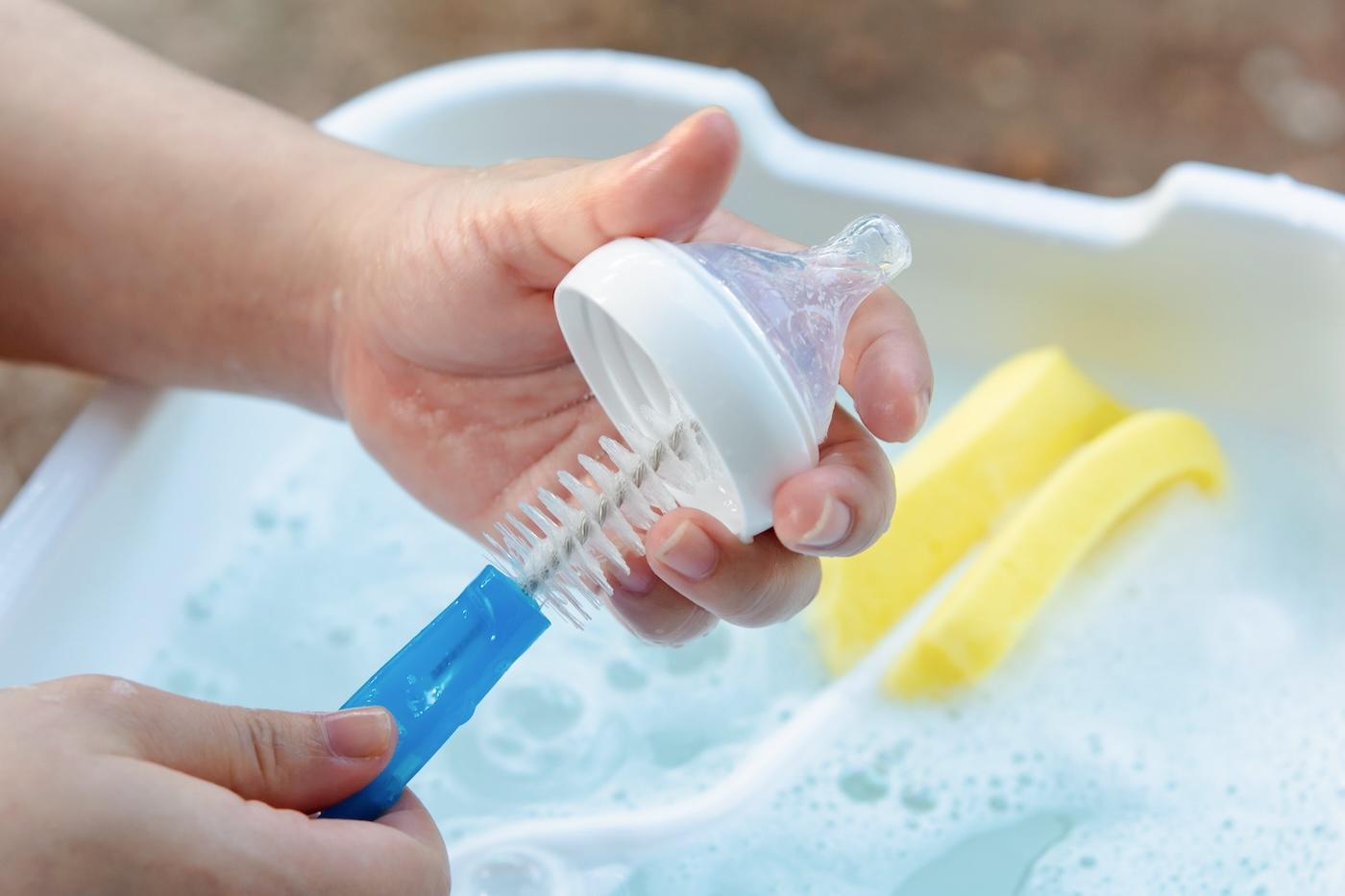BABY
5 Childhood Food Allergy Prevention Tips From an Allergist-Mom
5 easy tips to help reduce a baby’s food allergy risk from allergist and mom, Dr. Katie Marks-Cogan.

Written by
Happiest Baby Staff

This is a guest post written by Katie Marks-Cogan, M.D.
As a board-certified allergist, I’ve seen firsthand how families struggle with food allergies.
Thankfully, findings from recent landmark clinical studies have shown that introducing babies to allergenic foods early and frequently, starting at 4-11 months of age, can reduce food allergies by up to 80%.
So, when my son was 5 months old, I prepared peanut, egg, and yogurt snacks for him to eat each day (those 3 foods comprise ~80% of all childhood food allergies). But this was time-consuming and frustrating, most of what I offered ended up on the floor or on his face.
To help other parents through these challenges, I’ve compiled 5 tips to help reduce a baby’s food allergy risk:
1) Pick the Right Time of Day
All infants are at risk for developing food allergies, so all infants should be introduced to allergenic foods. But, picking the right time is key. When you’re ready to start, make sure that your baby is healthy, and that an adult can monitor your child for 2+ hours in case of a reaction.
2) Pick the Right Age
Around 4-11 months of age, our babies’ immune systems enter a critical window in which they begin to develop positive or negative responses to food proteins. It’s most effective—and protective—for babies to be introduced to allergens between 4-11 months of age.
3) Feed…and Repeat
Keep exposing your baby to allergenic foods multiple times a week, for several months. Feeding babies these foods only once or twice has not been shown to reduce their risk of developing a food allergy. In the landmark clinical studies, infants protected from allergies consumed allergenic foods 2-7 times a week for 3-6+ months.
4) Gradually Increase the Dosage
Start with a lower amount of each allergenic food, and then gradually increase the amount. This approach is the safest way to introduce your baby to allergens, as recommended by pediatricians.
5)Early Introduction Especially Benefits Infants with Eczema
Infants with eczema are at the highest risk for developing food allergies. Up to 67% of infants with severe eczema, and 25% of infants with mild eczema, will develop a food allergy. Thus, early, sustained allergen introduction is especially important for infants with eczema.
(If your infant has severe eczema, consult your pediatrician before starting early allergen introduction. Your pediatrician may recommend allergy testing prior to introducing any allergens.)
Early, sustained allergen introduction can be challenging. Thus, motivated by my clinical and personal experience, along with a team of passionate physicians, leading experts and parents, we set out to create a product that made it safe, simple, and effective for families everywhere.
After over a year of research and development, we’re proud to offer Ready, Set, Food!, a physician-approved system that:
- Helps reduce the risk of developing peanut, egg, and milk allergies by up to 80%,
- Easily dissolves into breastmilk or formula, making allergen introduction easy, even if baby is not developmentally ready for solid food, and
- Gradually increases the allergen amount over time, following pediatrician recommendations and clinical guidelines.
Happiest Baby recommends that you always consult your health care provider for dietary advice, especially before introducing allergy-provoking foods.
![[object Object]](https://cdn.sanity.io/images/301lhh0a/production/367865f1eddd5f1ef12033e46ade39e4e00e8cb2-360x480.jpg?w=750&auto=format&q=75&fit=max)
This article expresses the views and advice of Dr. Katie Marks-Cogan, board-certified in Allergy/Immunology and Internal Medicine, Chief Allergist for Ready, Set, Food!
Just for Happiest Baby families, use the promo code (HAPPIEST20) and receive $20 off any Ready, Set, Food! subscription.
To learn more about Ready, Set, Food!, and take advantage of this exclusive offer, visit their website here.
Disclaimer: The information on our site is NOT medical advice for any specific person or condition. It is only meant as general information. If you have any medical questions and concerns about your child or yourself, please contact your health provider.
SHARE THIS ARTICLE
MOST LOVED
Sleepytime Sidekicks












